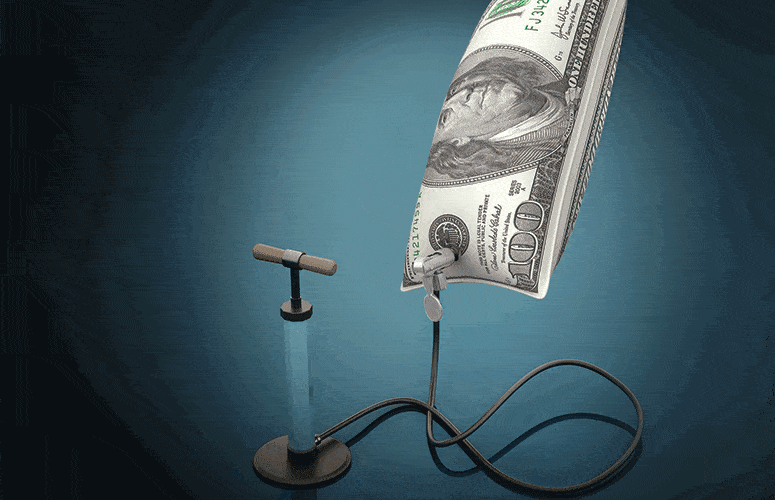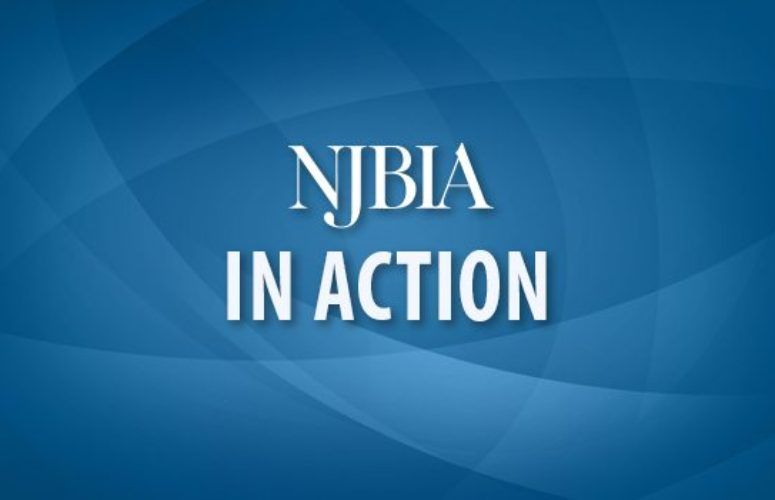
NJBIA’s 64th Annual Business Outlook Survey: Inflated Costs, Deflated Hopes
Sky-high inflation and no policies to reduce business burdens are the latest challenge for New Jersey employers.
On Nov 28, 2022Affordability may have been all the talk in Trenton a year ago. However, in the face of virtually no recent policies to reduce costs for New Jersey businesses and record-setting inflation in 2022, that buzz has been all but a bust.
In NJBIA’s 64th annual Business Outlook Survey, an overwhelming majority (75%) of respondents said Gov. Phil Murphy and lawmakers have not done enough to address business affordability in the past 12 months. (See Figure 2)
Further, a combined 82% said New Jersey is either somewhat unaffordable for business (46%) or not affordable at all for business (36%). (See Figure 3)
The pessimism for the state’s business climate comes on the heels of no tax relief made available to businesses in a record-setting $50.6 billion budget, as well as Gov. Murphy’s refusal – as of press time – to provide any relief for a $1 billion unemployment insurance tax employers were socked with after being shut down during the pandemic.
But there are also national factors at play. A whopping 93% of business owners or executive staff said they were substantially impacted (45%) or moderately impacted (48%) by inflation in 2022.
As for specific costs, 65% described themselves as substantially impacted by the higher expense for supplies and materials.
Another 63% said they were substantially impacted by increased fuel costs, while just under half (48%) said they were substantially impacted by higher labor costs.
Overwhelmingly, 58% said increasing prices for goods and services was the most effective way to offset rising inflationary costs, compared to 11% who listed reducing staffing, compensation and benefits as the most effective counter.
The jury is still out on what impacts continued inflation, the highest in 40 years, will have on jobs.
When asked if they anticipate needing to reduce staff if inflation remains the same or worsens over the next 12 months, most (36%) said they weren’t sure, while 35% said they would not need to reduce staff and 29% said they would.
The uncertainty may be based on how hard it is to find workers in the first place. Some 70% of respondents said they were challenged to find appropriate staffing in 2022. (See Figure 1). That’s only a 3% improvement from last year, when many workers were taking advantage of extended unemployment benefits.
As for positives, New Jersey businesses were typically bullish on their hopes for increased sales, profits and hiring in 2023.
However, their bleak outlook on both the national and New Jersey economy for the first six months of 2023 rivaled that of the Great Recession of 2008 and 2009.
Staffing
Those who said they struggled to hire were asked to list the top three factors that most affected their ability to find appropriate staffing.
Most (79%) said there were not enough candidates or applicants to fill open positions, while 59% said candidates lacked the required skills or qualifications.
Further down the list, 35% said they were unable to provide the requested compensation or benefits, while another 28% reported faster-than-typical employee turnover.
As for impacts that went along with hiring challenges, 61% said they increased wages, 59% said their available staff was more stressed or burnt out, and 45% said they lost revenue.
Another 38% said they hired staff with lower qualifications, and 31% acknowledged their service to customers suffered.
Employment
Even with those staffing challenges, however, New Jersey businesses did see a small rebound in hiring levels in 2022, although the numbers are nothing to celebrate. About 19% increased hiring this year, while 21% said they decreased hiring.
That net negative of -2% is a notable improvement from the net negative of -21% in 2021 and -23% in hiring in 2020 – mostly due to the pandemic closures and its aftermath. Prior to 2020, there had not been negative net hiring in this survey since 2012.
Looking to 2023, 30% predicted they will hire more, compared to 9%, which predicted less hiring – a +21% net positive hiring outlook. (See Figure 4 and Figure 6)
Sales
Actual sales grew for New Jersey businesses in 2022, with 51% claiming an increase in sales this year – an 8% jump from 2021 and 32% more than the pandemic year of 2020.
Forty-nine percent of businesses projected an increase in sales for 2023. That’s compared to 18% who foresee fewer sales next year. Overall, that’s a +31% net positive – an improvement from the last two years, but still well below pre-pandemic projections for sales. (See Figure 6)
Purchases and Prices
Not surprisingly, there were price increases for primary products and services of many New Jersey businesses to offset the historic increases in inflation in 2022.
A total of 71% said prices for their products and/or services increased in 2022 (17% increased substantially, 54% increased modestly). In fact, only 1% said they had decreased prices this year.
Regarding future purchasing plans, 45% are expecting to increase the dollar value of their purchases in 2023 and 16% are anticipating a decline. That’s a net positive of +29%, or 3 percentage points higher than the outlook for 2022.
In 2022, 55% of businesses said they made investments in productivity. That’s a slight increase from 54% in 2021 and 50% in 2020, but still off the mark from the pre-pandemic years of 2019 (62%), 2018 (61%) and 2017 (60%).
Challenges
For the second straight year, the overall cost of doing business was listed as the most troublesome problem for New Jersey businesses – with 25% listing it as top among their Top 4.
Health insurance, which used to be listed as a perennial top problem, climbed back to the No. 2 spot with 16%. Availability of skilled labor (14%) was listed as the third top problem, while property taxes, which held the unenviable top spot from 2017 to 2020, is now fourth (11%).
Seventy-four percent of respondents said they expect their health benefits costs to go up in 2023. Of those, 21% anticipated health benefit costs to rise 11% or more.
As for local property taxes, 61% expected an increase, 37% expected them to remain the same, and only 2% expected a decrease.
NJ’s Competitive Levels
This is typically a section of the survey where the state struggles, but there are a few bright spots to be found.
The leading competitive positive: 44% rate the quality of New Jersey public schools to be better than other states. At protecting the environment, 28% said New Jersey does better than other states – a 9% bump from two years ago. (See Figure 7)
Another notable positive: 28% said the quality of New Jersey’s workforce was better than other states. That’s up 7% from last year, when businesses were more apt to take less qualified workers to fill open positions.
Last year, 46% said New Jersey was a worse place to live than in other states. However, in 2022, that number went down to 32% – a notable improvement.
New Jersey, however, continues to struggle in many areas more directly tied to business. It was listed as worse than other states in taxes and fees (83%) and controlling government spending (74%) – the latter of which may directly be tied to a $50.6 billion state budget for FY23 that is now 41% higher since Gov. Murphy took office in 2018.
New Jersey is also listed as worse than other states in attracting new business (68%), controlling healthcare costs (67%), controlling labor costs (67%), and attitude toward business (58%).
Wages
While filling jobs remains an issue for New Jersey employers, efforts to increase wages are also continuing.
In 2022, 33% of businesses increased pay for employees by 5% or more. Two years ago, during the height of pandemic-related shutdowns and restrictions, that number was only 12%. (See Figure 8)
All totaled, 77% increased wages in 2022, a 5% increase of employers giving raises in 2021.
Despite the gloomy economic outlooks nationally and in New Jersey, businesses expect that upward trend to continue in 2023, with 23% saying they’ll increase wages more than 5%.
Another 32% said they’ll raise wages between 3% and 4.9% in 2023. All totaled, 77% said they’ll increase wages in 2023, while 22% anticipate no change in wages.
Profits
From 2012 to 2019, more New Jersey businesses reported gains than reported losses in this survey.
That all changed during the pandemic year of 2020 and the climb from that hole continues.
This year, 36% of respondents reported profits for the year, while 42% reported a loss – exemplifying NJBIA’s regular mantra to Trenton that “every dollar counts” when informing lawmakers on policy.
Businesses’ outlook for profits also continues to be lukewarm. In 2023, only 37% believe they will make a profit, compared to 24% who think they will lose money. That net positive of 13% continues a similar low outlook for profits over the past two years (See Figure 5).
Of that 37% hoping to be on the plus-side for 2023, 16% are only forecasting profits of 1% to 3% next year.
NJ’s Economic Climate
When respondents were asked about the current business conditions in their industry, 25% said they were experiencing a slowdown, while 19% said they were experiencing an expansion.
Fifteen percent said their industry was moving from a slowdown to a recovery, while 9% said they were moving from an expansion to a slowdown.
A continued reluctance for businesses to expand in New Jersey remains. Fifty-five percent of respondents said they had no plans to expand, while 23% said they would expand in another state, compared to 12% that would expand in New Jersey. Another 10% said they would open another location in New Jersey and another state. (See Figure 11).
As a location for new or expanded facilities, only 23% listed New Jersey as very good or good, while 40% described it as fair, and 37% ranked it as poor.
Only 14% said they believe New Jersey has made progress over the last year in easing regulatory obstacles. That number has declined steadily from 24% in 2017.
When asked if their business had postponed installation of equipment or any expansion due to delays in permitting or a regulatory process, a concerning 27% said yes – which is 14% higher than last year.
Only 39% said they are planning to keep New Jersey as their domicile in retirement. (See Figure 11). That number is up 7% over the last two years, but still an indication of the state’s low appeal for people to experience their golden years.
Economic Outlooks
No two words have been more concerning for the business community in 2022 than “inflation” and “recession,” and the economic outlook on the state and national economy in this survey bear that out in a near-historic fashion.
In 2022, most (48%) rated New Jersey’s economy as fair, while 30% described it as poor. Twenty percent listed it as good – a 5% drop from last year – while only 2% called it excellent.
When asked how New Jersey’s economy will fare in the first six months of 2023, only 16% reported it would be better, while 52% said it would be worse. (See Figure 9)
That -36% net negative is the lowest outlook for New Jersey’s economy since 2009, when the economy was in the throes of the Great Recession. (See Figure 10)
Not surprisingly, most (79%) rated the US economy as fair (40%) or poor (39%) in 2022.
Looking ahead, more pessimism abounds. A total of 56% said they believed the US economy would perform moderately worse (40%) or substantially worse (16%) in the first six months of 2023.
Comparatively, only 16% said the US economy would perform substantially or moderately better in the first half of next year.
That’s a -40% net outlook for the national economy, the lowest in this category in this century. (See Figure 9)
In years past, low state and national economic outlooks have been countered by more positive outlooks for employers in their specific industries. Not so much this year. Only 25% called for a substantially or moderately better first six months of 2023 – compared to 30% who said it would be worse. That –5% net negative industry outlook is the first in this survey since 2012 (-9%).
About the Survey: Questions for NJBIA’s 64th Annual Business Outlook Survey were sent to New Jersey business owners and executive staff in September and October, 2022. The report is based on 468 valid responses. Most respondents were small businesses, with 61% employing 24 or fewer people.
To access more business news, visit NJB News Now.
Related Articles:





